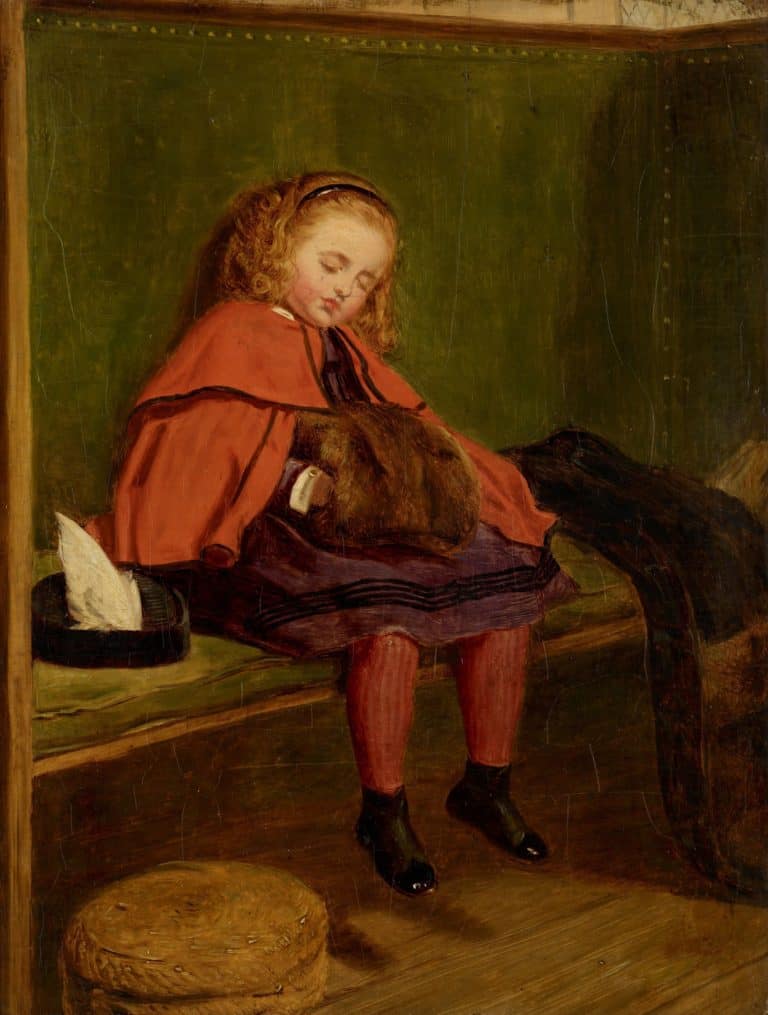Health Obsessive Compulsive Disorder (Health OCD)
Medically Reviewed By – Juliet Gustafson, LMSW

Health OCD, or as I like to call it, “WebMD on Steroids,” is a quirky subtype of obsessive-compulsive disorder (OCD) that takes hypochondria to a whole new level. These are the folks who have a “PhD in Googling Symptoms” and can turn a tiny headache into a full-blown brain tumor in a matter of seconds.
Picture this: You’re out with friends, enjoying a meal, when suddenly your health OCD buddy starts examining their body like a detective on a crime scene. They’re checking for lumps, monitoring their pulse, and contemplating the significance of every sneeze or sniffle. Forget about a casual conversation—it’s all about their latest self-diagnosis and medical mystery.
While it may sound amusing, health OCD can be challenging for those who live with it. The constant worry, the endless checking, and the never-ending quest for medical reassurance can take a toll on their lives.
What are you waiting for? – Download Your FREE OCD Worksheets Now!

🎁 Special Offer: 🎁 When you use our affiliate link, you’ll receive an exclusive 20% discount on Online-Therapy.com services!
Don’t miss this opportunity to invest in yourself and unlock your full potential. Start your journey to mental wellness today!
Say yes to a brighter, happier future with Online-Therapy.com!
20% discount on Online-Therapy.com services
Are you ready to take control of your mental well-being and embark on a journey towards a happier, healthier you? Look no further than Online-Therapy.com!
Experience a transformation in your mental health with the following benefits:
- Convenient & Confidential: Online-Therapy.com provides a safe and private platform for therapy sessions. Say goodbye to the stress of in-person appointments.
- Comprehensive Resources: Access a treasure trove of therapeutic resources, including worksheets, journals, and interactive tools, all designed to help you grow and heal.
- Certified Professionals: Connect with experienced and licensed therapists who are dedicated to your progress and well-being.
- Tailored Approach: Online-Therapy.com offers personalized plans designed to suit your specific needs, ensuring you receive the support you deserve.
Understanding Health OCD
Health Obsessive compulsive disorder, also known as illness anxiety disorder or hypochondriasis, is a mental health condition characterized by excessive and persistent worry about having a serious health condition.
People with health obsessive compulsive disorder often interpret minor bodily sensations or common symptoms as evidence of a severe illness, leading to heightened anxiety and distress.
Individuals with health OCD may engage in various behaviors or mental rituals to alleviate their anxiety, such as excessive checking of their body for signs of illness, researching medical conditions extensively, seeking repeated medical consultations, or avoiding situations that they perceive as potentially harmful to their health.
Some common features of health OCD include:
Preoccupation with physical sensations
People with health OCD tend to excessively focus on bodily sensations and interpret them as indicators of a serious medical condition.
For example, a minor headache may be interpreted as a brain tumor.
Persistent anxiety and worry
Individuals with health OCD experience symptoms of ongoing and excessive intrusive thoughts about their health, often fearing the worst-case scenario.
They may frequently seek reassurance from medical professionals or loved ones, but this reassurance provides only temporary relief.
Excessive checking and monitoring
People with health OCD may engage in frequent body checks or monitor their vital signs excessively.
This can involve constantly examining their body for signs of illness or using medical devices to measure their heart rate, blood pressure, or other bodily functions.
Doctor shopping
Individuals with health OCD may visit multiple doctors or specialists seeking confirmation of their fears.
They may become dissatisfied or distrustful of medical opinions that do not align with their beliefs about their health condition.
Excessive research and seeking medical information
Health OCD sufferers often spend excessive amounts of time researching medical conditions, symptoms, and potential causes.
They may constantly read health-related articles, visit online forums, or consult medical literature in an attempt to validate their concerns.
The obsessions and compulsions (repetitive behaviors) associated with health OCD significantly impact a person’s daily life, causing distress, impaired functioning, and a decline in overall everyday life (poor quality).
Health OCD Symptoms
Health OCD, also known as illness anxiety disorder or hypochondriasis, is characterized by obsessive fears and preoccupation with having a serious health issue.
The symptoms of health OCD can vary from person to person, but some common signs and symptoms include:
Excessive fear of having a serious illness
Individuals with health OCD often have an intense fear of having a severe medical condition, even in the absence of substantial evidence.
They may believe that minor symptoms or bodily sensations are indicative of a life-threatening illness.
Preoccupation with bodily sensations
People with health OCD tend to focus excessively on bodily sensations and interpret them as evidence of illness.
They may constantly monitor (repetitive behaviors) their body for any changes or abnormalities, leading to heightened anxiety and magical thinking.
Excessive checking and reassurance seeking
Those with health OCD frequently engage in repetitive behaviors such as checking their body for signs of illness, seeking reassurance from medical professionals or loved ones, or conducting frequent medical examinations.
Excessive medical research
Individuals with health OCD may spend significant amounts of time researching medical conditions (time consuming), symptoms, and potential causes.
They may constantly read health-related articles, visit online forums, or consult medical literature to confirm their fears and gather information to support their illness beliefs and contamination fears.
Doctor shopping
People with health OCD may consult multiple doctors or specialists in an attempt to receive confirmation of their illness concerns.
They may become dissatisfied with medical opinions that do not align with their beliefs and continue searching for a diagnosis.
Impaired functioning and distress
Health OCD can significantly impact an individual’s daily life, causing distress, anxiety, and impaired functioning in various areas, such as work, relationship difficulties, and social activities.
Excessive use of medical resources
Individuals with health OCD may consume a considerable amount of medical resources, including frequent doctor visits, medical tests, and procedures, even when there is little or no medical justification.
Difficulty in accepting medical reassurance
Reassurance from medical professionals or loved ones may provide only temporary relief for individuals with health OCD.
They may struggle to accept reassurances and constantly seek further confirmation.
Common Obsessions

In health OCD (obsessive-compulsive disorder), individuals often experience intrusive and distressing thoughts or obsessions related to their health.
These obsessions typically revolve around the fear of having a serious medical condition or the belief that minor bodily sensations indicate a severe illness.
Some obsessions in health OCD include:
Fear of having a specific disease
Obsessively fear having a particular disease, such as cancer, HIV/AIDS, heart disease, or neurological disorders.
They may constantly worry about experiencing symptoms associated with these conditions and interpret benign sensations as evidence of the disease.
Catastrophic interpretations of minor symptoms
People with health OCD often magnify and catastrophize normal bodily sensations or minor symptoms.
For example, a mild headache might be interpreted as a sign of a brain tumor, or a slight chest discomfort may be seen as a heart attack.
Hypersensitivity to bodily sensations
sufferers may become hyper-aware of their bodily sensations and constantly monitor themselves for any changes in symptoms.
They may interpret common bodily functions, such as heart rate fluctuations, breathing patterns, or digestion, as abnormal and indicative of a severe health problem.
Excessive focus on physical appearance
Some individuals with health OCD may experience unwanted thoughts over perceived physical imperfections or abnormalities, such as skin blemishes, moles, or asymmetry.
They may constantly scrutinize their appearance, seek reassurance, or engage in excessive grooming or cosmetic procedures.
Fear of contamination or infection
Some individuals with health OCD may obsessively fear contamination or getting sick from germs, bacteria, or viruses.
They may excessively wash their hands(contamination ocd), avoid touching surfaces, or engage in rituals to prevent perceived contamination.
Compulsive body checking
People with health OCD often engage in excessive body checking behaviors, such as examining their body for lumps, irregularities, or changes.
They may spend significant time in front of mirrors, measuring their body parts, or feeling for any perceived abnormalities.
Constant seeking of medical reassurance
Health OCD sufferers may seek repeated medical consultations and opinions, looking for confirmation that they are not seriously ill.
However, the reassurance provided is often short-lived, and the cycle of, medical care continues.
The constant fear of having a serious health condition can cause a person to spend most of their day in a doctor’s office.
Related Article(s) – What are Obsessions in OCD?
Common Compulsions
In health OCD (obsessive-compulsive disorder), individuals often engage in compulsive behavior or rituals as a way to reduce anxiety and intrusive thoughts regarding their health obsessions.
These compulsions are repetitive and often driven by ocd obsessions and intrusive thoughts related to having a serious medical condition.
Some common compulsions in health OCD include:
Excessive checking
People with health OCD may engage in frequent checking behaviors related to their health.
This can involve repeatedly examining their body for signs of illness, such as checking for lumps, monitoring vital signs, or performing self-diagnostic tests.
Seeking medical reassurance
Individuals with health OCD may constantly seek reassurance from medical professionals, requesting multiple opinions or seeking repeated medical consultations.
They may seek confirmation that their symptoms are not indicative of a serious medical condition, despite previous reassurances.
Compulsive researching
Health OCD sufferers often spend excessive amounts of time researching medical conditions, symptoms, and potential causes.
They may constantly read health-related articles, visit online forums, or consult medical literature to gather information that validates their fears.
Avoidance behaviors
Some individuals with health OCD may engage in avoidance behaviors to reduce their anxiety about potential health risks.
This can include avoiding situations or places they perceive as harmful to their health, such as hospitals, clinics, or crowded areas where they fear exposure to germs.
Repeated medical tests or procedures
People with health OCD may undergo unnecessary medical tests or procedures, seeking confirmation of their health concerns.
They may repeatedly request blood tests, imaging scans, or other medical investigations despite previous negative results.
Excessive hygiene and sanitization
In an attempt to prevent perceived contamination or illness, individuals with health OCD may engage in excessive hygiene behaviors.
This can involve frequent hand washing, using hand sanitizers excessively, avoiding physical contact with others, or excessively cleaning their environment.
Body monitoring and reassurance seeking
Health OCD sufferers may constantly monitor their bodily functions, such as heart rate, breathing patterns, or digestion, seeking reassurance that these functions are normal.
They may use medical devices to measure these functions repeatedly throughout the day.
Some individuals with health OCD may develop rituals around taking medication or supplements.
This can involve specific order, timing, or repetition of doses to ward off feared illnesses.
Take The Y-BOCS OCD Test to help determine the severity of your OCD symptoms.
What is the Difference Between Health OCD and Health Anxiety

Health OCD (obsessive-compulsive disorder) and health anxiety, also known as illness anxiety disorder, share similarities in that they both involve excessive worry about one’s health.
However, there are shown differences between the two conditions:
Nature of the anxiety:
- Health OCD: In health OCD, the anxiety is primarily driven by unwanted thoughts and distressing obsessions related to having a serious health condition. Individuals with health OCD often experience recurrent and unwanted thoughts or underlying fear about their health, interpreting minor bodily sensations or symptoms as evidence of a severe illness.
- Health Anxiety: Health anxiety, on the other hand, is characterized by persistent worry and anxiety about having a serious illness, despite little or no medical evidence to support such concerns. People with health anxiety may become excessively preoccupied with their health, constantly seeking reassurance, and frequently checking their body for signs of illness.
Presence of compulsions:
- Health OCD: Health OCD is typically associated with specific compulsive behaviors or rituals that individuals engage in to reduce their anxiety or seek reassurance regarding their health concerns. These compulsions may involve repetitive checking, researching medical information, seeking repeated medical consultations, or performing physical examinations on themselves.
- Health Anxiety: While health anxiety can also lead to checking behaviors and seeking reassurance, the presence of compulsions is not as prominent as in health OCD. The focus in health anxiety is more on the persistent worry and preoccupation with health rather than the specific rituals or behaviors.
Degree of impairment:
- Health OCD: Health OCD can significantly impair a person’s daily functioning, as the obsessions and compulsions consume a significant amount of time and mental energy. It can interfere with work, relationships, and social activities, causing distress and impairment in various areas of life.
- Health Anxiety: Health anxiety can also cause significant distress, but the impairment may be less severe compared to health OCD. While individuals with health anxiety may experience distressing thoughts and engage in some checking behaviors, they may still be able to carry out their daily activities without significant disruption.
Diagnostic classification:
- Health OCD: Health OCD is classified as a subtype of obsessive-compulsive disorder (OCD) in the Diagnostic and Statistical Manual of Mental Disorders (DSM-5). It falls under the broader category of OCD, which encompasses various obsessions and compulsions.
- Health Anxiety: Health anxiety, or illness anxiety disorder, is a distinct diagnosis classified separately from OCD in the DSM-5. It is categorized as an anxiety disorder characterized by excessive worry about having a serious medical condition.
It’s worth noting that individuals with health OCD or health anxiety may share overlapping symptoms and experiences, and in some cases, individuals may exhibit features of both conditions.
A qualified mental health professional can provide an accurate diagnosis and develop an appropriate treatment plan based on an individual’s specific symptoms and needs.
Related Article(s) – Is OCD a form of Anxiety?
How Do You Treat Health OCD?
Health OCD, like other forms of obsessive-compulsive disorder (OCD), is typically treated using a combination of therapies, treatment approaches and, in some cases, ocd medications.
The goal of treatment is to reduce the symptoms, alleviate distress, and improve overall functioning.
Here are some common approaches used in the treatment of health OCD:
Cognitive-Behavioral Therapy (CBT)
A widely recognized and evidence-based form of psychotherapy (talk treatment) that focuses on the relationship between a person’s thoughts, emotions, and behaviors.
CBT is based on the idea that our thoughts and beliefs about ourselves, others, and the world around us can influence our emotions and behaviors.
Therapists often use cognitive behavioral therapy (CBT) to treat OCD
Exposure and Response Prevention (ERP)
This is a key component of CBT for OCD. It involves gradually exposing individuals to their health-related fears or triggers while preventing the usual compulsive behaviors or rituals.
Over time, this helps to reduce the anxiety associated with the obsessions.
Cognitive Restructuring
This technique/treatment involves challenging and modifying irrational or exaggerated thoughts and beliefs related to health care.
It aims to develop a more realistic and balanced perspective about health and bodily sensations.
Mindfulness-Based Therapies
Mindfulness-based interventions, such as mindfulness-based cognitive therapy (MBCT) or acceptance and commitment therapy (ACT), can help individuals with health OCD develop a non-judgmental and accepting stance towards their obsessive thoughts and physical sensations.
This can reduce the anxiety and reactivity associated with the obsessions. MBCT is also used to treat ocd.
Medication: Selective Serotonin Reuptake Inhibitors (SSRIs)
These medications, commonly used for OCD, can help reduce the symptoms of health OCD. SSRIs work by increasing the levels of serotonin in the brain, which is involved in regulating mood and anxiety.
Support Groups
Participating in support groups or therapy groups specifically tailored for individuals with OCD symptoms can provide a supportive environment to share experiences, learn coping strategies, and receive encouragement from others facing similar challenges. This can also include family members.
Psycho-education
Learning about the nature of Obsessive Compulsive Disorder (OCD), its underlying mechanisms, and the specific features of health OCD can help individuals gain a better understanding of their condition.
Psycho-education also helps individuals recognize that their ocd obsessions and anxieties are part of a treatable mental health disorder.
It’s important to note that treatment for health OCD should be tailored to the individual’s specific needs and preferences.
Related Article(s) – What Will Happen if OCD is Left Untreated?

🎁 Special Offer: 🎁 When you use our affiliate link, you’ll receive an exclusive 20% discount on Online-Therapy.com services!
Don’t miss this opportunity to invest in yourself and unlock your full potential. Start your journey to mental wellness today!
Say yes to a brighter, happier future with Online-Therapy.com!
20% discount on Online-Therapy.com services
Are you ready to take control of your mental well-being and embark on a journey towards a happier, healthier you? Look no further than Online-Therapy.com!
Experience a transformation in your mental health with the following benefits:
- Convenient & Confidential: Online-Therapy.com provides a safe and private platform for therapy sessions. Say goodbye to the stress of in-person appointments.
- Comprehensive Resources: Access a treasure trove of therapeutic resources, including worksheets, journals, and interactive tools, all designed to help you grow and heal.
- Certified Professionals: Connect with experienced and licensed therapists who are dedicated to your progress and well-being.
- Tailored Approach: Online-Therapy.com offers personalized plans designed to suit your specific needs, ensuring you receive the support you deserve.
Final Thoughts on Health OCD
In summary, health OCD, or illness anxiety disorder, is a subtype of obsessive-compulsive disorder characterized by excessive worry and preoccupation with one’s health.
Individuals with health OCD fear having a serious medical condition and interpret minor bodily sensations as evidence of illness.
This leads to compulsive behaviors like checking, seeking reassurance, and conducting medical tests.
Fortunately, effective treatments such as cognitive-behavioral therapy (CBT) and medication are available in treating ocd.
CBT, specifically Exposure and Response Prevention (ERP), challenges fears and reduces the need for compulsions during ocd treatment. ocd Medications like SSRIs can also help manage symptoms.
Seeking help from mental health professionals is crucial for accurate diagnosis and tailored treatment.
With proper support, individuals can learn to manage their obsessions, reduce anxiety, and regain control over their lives.
By approaching health concerns with a touch of humor and a dose of reality, individuals can find a healthier perspective and improve their mental well-being.
